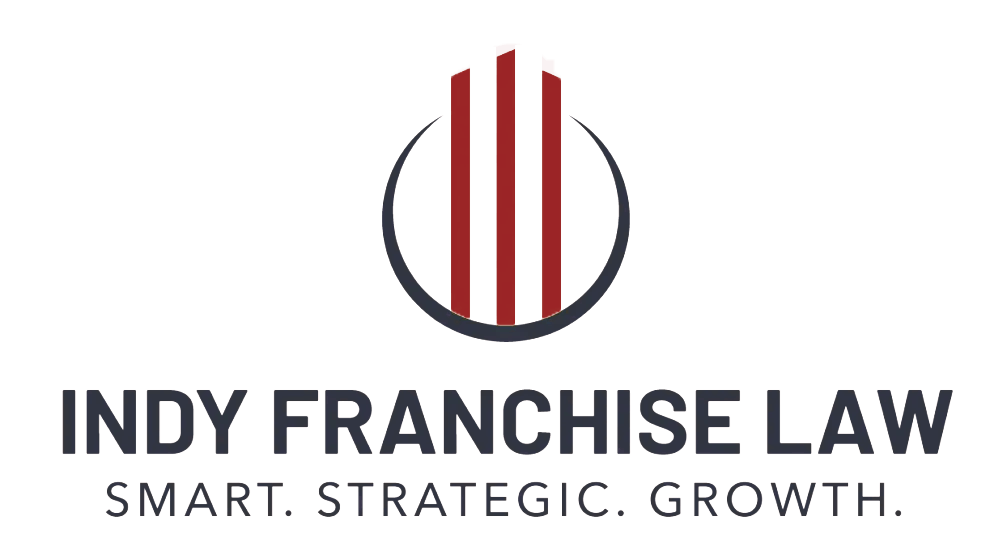“Should I franchise my business?”
As a franchise attorney, that is a question I get asked all the time! Truthfully, there is no one-size-fits-all answer. Every business is different, and perhaps more importantly, every business owner is different. Today I’m diving in to help you determine whether you should franchise your business or remain independent.
To answer this question, I’m asking you to reflect on yourself and your business and ask five questions that we were all taught at a very young age: Who? What? Where? When? and Why?
Now, bear with me for a second. You are probably thinking, “Wait. Shouldn’t you be asking me how much revenue my business makes, or what the demand for my services are, or some other measure that demonstrates how successful my business is?” Sure. These factors, as well as a million others, are all important to consider before you make the final decision to franchise. That is why it is so important to work with experienced and knowledgeable attorneys, accountants, and other professionals when you are setting up a franchise system. The purpose of today’s post, however, is just to help you learn if you should consider franchising as a serious option for future growth, or if you should remain independent.
Admittedly, my questions to you are more precisely phrased as:
- Who are you as a business owner?
- What are your business goals?
- Where do you want to start franchising?
- When should you franchise?
- Why are you wanting to franchise?
Being able to answer these questions will help you determine if the franchise model may work for your business. So, let’s take a closer look at each of these questions.
1. Who are you as a business owner?
One of the most important things to understand about the franchise model is that your role as an owner will change once you decide to franchise. That is why you need to take an honest look at who you are as a business owner.
There is a big difference between working IN your business and working ON your business. A business owner who is working IN the business is helping to complete the day-to-day tasks of the business. A business owner who is working ON the business is doing things that help the business grow, such as building brand recognition or recruiting new clients. In other words, a business owner who is working ON the business has systems and processes in place to handle new business without the owner’s assistance.
Let’s look at an example. Let’s say a person owns a restaurant. If the person orders the ingredients, cooks the food, and handles the cash register, that person is working IN the business. If the person has taught employees how to order the ingredients, cook the food, and handle the cash register, while the person is working on marketing, designing new ads, and building a clientele, that person is working ON the business.
In the real world, it might be hard to tell whether you are working IN or ON your business. Many of the small business owners that I talk to feel like they are doing everything, which most likely means they are working more IN their business than ON it.
You need to understand that if you make the decision to franchise, your priority will no longer be working IN your business. You will be working ON your business. If you feel that you, as the owner, are doing everything to make your business work properly, you are most likely not ready to look at franchising. However, if you have systems in place that allow you to work ON your business and you could teach someone else how to open, run, and operate the business by utilizing the same business model, you could be ready to look at franchising as an option.
2. What are your business goals?
Next, I’m asking you to think about the goals you have for your business. I’m always surprised by the number of business owners I talk to who have not set any goals. As you can imagine, most people say their goal is something like, “I want to grow my business.”
Growing your business is an obvious goal, but like with most things in life, the devil is in the details. I’m a firm believer that bigger does not always mean better when it comes to business growth, which is why it is so important that business owners set measurable goals and then develop a strategy to achieve them.
So, what is it that you want your business to become? Do you want to expand your client base? Do you want to generate more revenue? Do you want to open multiple locations?
Franchising can help you achieve each of these goals, but only if it is done strategically.
Of course, franchising is not the only way to achieve business growth and success. In fact, many business owners may find that franchising is neither the fastest nor the most efficient way to grow a business. As a franchise attorney, I obviously believe in the power of the franchise model for growth and development, but I also realistically understand that this model may not be the best option for every business.
So, sit down and set goals for your business. Then, ask yourself whether the franchise model can help you achieve your goals.
3. Where do you want to start franchising?
People often believe that setting up a franchise system will help them achieve nation-wide recognition quickly. That is not usually the case though, so it is important to begin thinking about where you want to start franchising.
If you have a business based in Indiana and you want to franchise in California because you’ve always wanted to vacation there, I might have bad news for you. Likewise, if you own a business in Indiana and someone approaches you about opening a franchise location in Florida, you might want to hold off.
In most cases, it just isn’t practical to use the franchise model to expand to one or two locations across the country. Do you really want to be a plane ride away whenever something goes wrong at the franchise location? Of course not! That will be expensive and time consuming, especially if you are just starting the system and don’t have all of the problems worked out.
I subscribe to the theory that before you expand outward, you should try to grow in your own backyard. Try dominating the 100 mile radius around your original location first, then look towards franchising for future locations.
Growing in your own backyard makes good business sense. You are a car ride away from troubleshooting and resolving any problems that might occur within the system. So, begin by opening multiple locations, and expand to franchising locally. After you have developed a strong franchise system that works in your area, you can expand regionally. From there, you can continue to grow your system.
4. When should you franchise?
Just like any other business opportunity, when it comes to franchising, timing is everything. So, how do you know when you are ready to franchise?
The first question I usually ask people who want to franchise their business is whether they have opened multiple locations. To me, this is an important indicator of whether a person is ready to seriously consider franchising a business because it demonstrates that the business model can operate without the owner’s assistance.
If you operate multiple locations, you are not usually running the day-to-day operations of the business. You’ve most likely delegated some of your control to other people because there is no possible way for you to be in two places at once. In other words, as I said above, you are probably working ON your business rather than IN it. This tells me that you might be ready to transition from the role of business owner to franchisor because you understand the challenges that you faced when opening a new location and have developed the skills and resources necessary to help potential franchisees achieve success when they open a new location.
While I often suggest that people try to own and operate multiple locations before setting up a franchise system, I am also very much aware that there are franchise systems that have been successful without following this rule. However, in my experience, running multiple successful locations can better prepare you for the mindset required to become a franchisor.
5. Why are you wanting to franchise?
Finally, I want you to consider the reasons you are wanting to franchise. Some of your reasons may have already been discussed in this post, such as wanting to grow your business, or wanting to franchise in a more desirable location. However, the answer that I hear the most is that people want to franchise their business to alleviate economic pressures.
On the surface, a franchise system sounds awesome to some people because they think that as a franchisor, they will get to create this system and then other people invest their time and money into the system, which creates profits for everyone. In other words, some people believe that once a franchise system is in place, most of the work is done and money will be easy to come by.
Unfortunately, I have to tell you that it is not that simple. In most cases becoming a franchisor will not alleviate any short-term economic pressures. In fact, setting up a franchise system can be an expensive process.
In order to become a successful franchisor, you have to be constantly looking at ways to improve your system. Think about all of the things that you had to do to make your business successful. You had to choose a great location. You had to build brand recognition. You had to ensure customer satisfaction. You had to make sure you had adequate quality controls in place. You had to teach other people how to do the day-to-day tasks. As a franchisor, you still have to do all of these things, but on a much larger scale. As a franchisor, instead of running one location, you are now running the whole system.
So, if you are looking to alleviate economic pressure, it might be better to step back and try to tweak your own business model before moving into the franchise space.
In conclusion, there are many different things to consider before you make the decision to franchise your business. It is important to talk with a reputable attorney who can help you understand whether franchising is right for you and your business. If, after reading this post, you feel like you may be ready to talk to an attorney about becoming a franchisor, please feel free to visit the Contact Us page and reach out to our office. Regardless, please feel free to check out the additional resources available on Indyfranchiselaw.com.
Feedback:
Have any suggestions for future shows? Have questions or a topic you would like to us to do an episode on? If so, please leave a comment.
Check out our corresponding podcast on iTunes or Stitcher!
iTunes: Franchise Euphoria Podcast










Comments are closed.